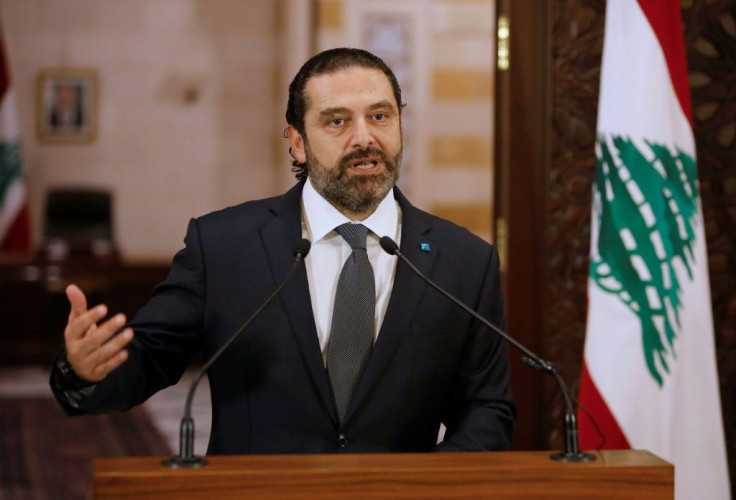Lebanon PM Hariri Says To Submit Resignation

Lebanon's embattled Prime Minister Saad Hariri said Tuesday he will submit his cabinet's resignation, bowing to pressure from a mass protest movement that has crippled the country for nearly two weeks.
"I am going to Baabda Palace to submit the government's resignation to the president," Michel Aoun, he said in a televised speech.
Hariri said his decision was "in response to the will of many Lebanese who have taken to the streets to demand change" in what he called "historic" protests.
"Posts come and go, what matters is the safety and dignity of the people," Hariri said.
It is unusual for a prime minister to announce his cabinet's resignation before holding talks at the presidential palace in Baabda.
The sudden resignation -- the third by Hariri in his career -- will restart the complicated task of parliament forming a new government if it is accepted by the president.
It would also mark the most significant win by demonstrators who have thronged the streets of the country since October 17 demanding political change.
After the announcement, the main protest square in central Beirut erupted into applause, less than a hour after counter-demonstrators ravaged the site and attacked protesters.
"Saad Hariri is only the beginning," said one protester shown on local television.
"We will continue" until others resign, he added.
The nationwide cross-sectarian protest movement is calling for an overhaul of a political class viewed as incompetent and corrupt.
Lebanon's political leaders have appeared shell-shocked, trying simultaneously to express sympathy for the largely peaceful protests while warning of chaos in case of a power vacuum.
In a bid to appease the protests, Hariri had announced a package of economic reforms aimed at reviving an economy that has been on the brink of collapse for months.
But the protesters have accused the political elite of desperately attempting to save their jobs and have stuck to their demands for deep, systemic change.
© Copyright AFP 2024. All rights reserved.





















